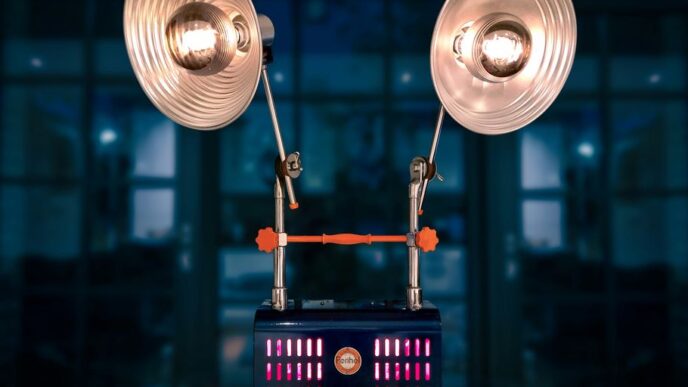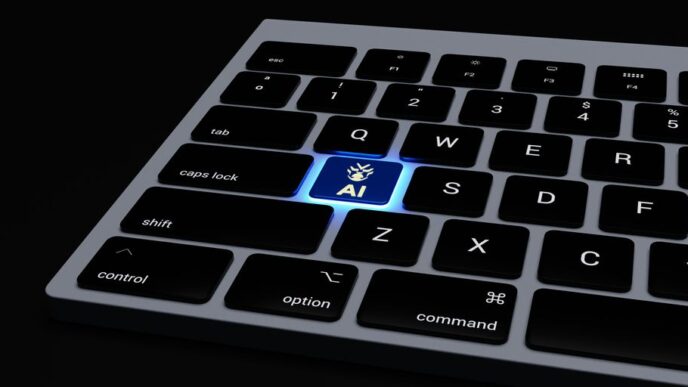Lithium-ion batteries have revolutionized the way we power our devices, vehicles, and homes, becoming a critical component of modern life. At the core of this innovation are lithium battery manufacturer, the key players driving advancements in battery technology. These manufacturers produce the power systems that fuel everything from smartphones and laptops to electric vehicles (EVs) and renewable energy storage solutions. The demand for lithium-ion batteries is growing at an unprecedented rate, and as a result, lithium battery manufacturers are at the forefront of energy storage solutions.
The global push towards sustainable energy and the transition away from fossil fuels have significantly boosted the lithium battery market. From advancements in battery design and capacity to increasing environmental responsibility, lithium battery manufacturers are navigating a complex yet exciting landscape filled with challenges and opportunities.
What Are Lithium Batteries?
Lithium batteries, particularly lithium-ion (Li-ion) batteries, are rechargeable power sources commonly used in electronics, electric vehicles, and large-scale energy storage systems. They are characterized by their high energy density, long lifespan, and low maintenance compared to other types of batteries like lead-acid or nickel-cadmium batteries. Their primary advantage lies in their ability to store large amounts of energy in a relatively small and lightweight package.
Lithium-ion batteries function by moving lithium ions between two electrodes: a positive cathode and a negative anode. This movement occurs during both charging and discharging processes. The chemical composition and design of the battery can vary, with manufacturers tailoring specific chemistries such as lithium cobalt oxide, lithium manganese oxide, or lithium iron phosphate to suit different applications.
The Role of Lithium Battery Manufacturers
Lithium battery manufacturers play a critical role in the global energy landscape. They are responsible for designing, producing, and distributing batteries that power essential devices and systems. These manufacturers operate in diverse industries, supplying batteries for everything from portable electronics to industrial energy storage and electric vehicles.
The process of manufacturing lithium batteries involves several stages, including the preparation of active materials, the assembly of cells, and the integration of these cells into battery packs. Manufacturers must ensure that the batteries they produce meet the required performance, safety, and durability standards while keeping costs competitive. As such, research and development (R&D) play a significant role in driving innovation within the industry.
Key Players in the Lithium Battery Market
The lithium battery market is dominated by a handful of large manufacturers, with companies like Panasonic, CATL, LG Chem, and Samsung SDI leading the charge. These manufacturers supply batteries for a range of applications, with a significant focus on electric vehicles and renewable energy storage systems.
Panasonic: As one of the largest producers of lithium-ion batteries, Panasonic is a key supplier to the electric vehicle market, particularly through its partnership with Tesla. Panasonic’s batteries power many of Tesla’s electric vehicles and energy storage products, making it a significant player in the transition toward electric transportation.
CATL (Contemporary Amperex Technology Co. Limited): Based in China, CATL is a global leader in lithium-ion battery production, focusing primarily on electric vehicle batteries. CATL is one of the largest suppliers of EV batteries worldwide and has established partnerships with major automakers such as BMW, Volkswagen, and Honda.
LG Chem: LG Chem, a South Korean company, is another dominant force in the lithium battery manufacturing industry. The company produces batteries for a range of applications, including electric vehicles, renewable energy storage, and consumer electronics.
Samsung SDI: A subsidiary of Samsung, Samsung SDI specializes in the production of lithium-ion batteries for both consumer electronics and electric vehicles. The company is known for its focus on high-quality battery solutions and innovation in energy storage technology.
Applications of Lithium Batteries
Lithium-ion batteries are essential to various industries, and their applications are continually expanding as the demand for clean energy and high-performance battery systems grows. Some of the key sectors where lithium battery manufacturers play a significant role include:
- Electric Vehicles (EVs): The electric vehicle industry is one of the largest consumers of lithium-ion batteries, and manufacturers are ramping up production to meet the growing demand. EVs rely on high-capacity lithium-ion batteries to provide the power needed for efficient and long-distance driving. These batteries offer the perfect combination of high energy density, long cycle life, and fast charging capabilities. Lithium battery manufacturers work closely with automakers to develop specialized battery packs that optimize performance, safety, and durability.
- Renewable Energy Storage: Lithium-ion batteries are a critical component of renewable energy systems, such as solar and wind power. As the world shifts towards cleaner energy sources, the ability to store energy efficiently has become crucial. Lithium battery manufacturers produce large-scale energy storage systems (ESS) that allow for the capture and storage of excess energy generated during peak production periods. This stored energy can then be used during times of low production, ensuring a continuous and reliable supply of clean energy.
- Consumer Electronics: One of the most widespread applications of lithium-ion batteries is in consumer electronics. Devices like smartphones, tablets, laptops, and wearable technology rely on these batteries due to their lightweight nature and high energy density. Lithium battery manufacturers produce millions of batteries annually to power these devices, meeting the demand for longer battery life and faster charging times.
- Industrial and Grid-Scale Energy Storage: Beyond renewable energy storage, lithium-ion batteries are also used in industrial applications and for grid stabilization. Large-scale battery systems can store energy during times of low demand and release it when the grid is under stress. This ability to balance supply and demand is critical for maintaining a stable and resilient power grid, particularly as more intermittent renewable energy sources are integrated.
Technological Advancements in Lithium Battery Manufacturing
The lithium battery industry is evolving rapidly, with manufacturers investing heavily in research and development to enhance battery performance, safety, and sustainability. Some of the most significant advancements in lithium battery technology include:
- Solid-State Batteries: Solid-state batteries are a promising technology that could revolutionize the lithium battery industry. Unlike traditional lithium-ion batteries, which use liquid electrolytes, solid-state batteries use solid electrolytes. This design offers several advantages, including higher energy density, improved safety, and longer battery life. Many lithium battery manufacturers are working on developing solid-state batteries for applications such as electric vehicles, where these benefits could lead to longer driving ranges and faster charging times.
- Fast Charging Capabilities: As the demand for electric vehicles and portable electronics grows, so does the need for faster charging solutions. Lithium battery manufacturers are exploring new materials and designs that can reduce charging times without compromising battery life or safety. The development of fast-charging lithium batteries could significantly enhance the convenience and usability of electric vehicles and other battery-powered devices.
- Recycling and Sustainability: With the increasing use of lithium-ion batteries, concerns about the environmental impact of battery disposal are becoming more prominent. To address this, lithium battery manufacturers are focusing on developing recycling technologies that allow valuable materials, such as lithium, cobalt, and nickel, to be recovered from used batteries. Recycling reduces the need for raw material extraction and helps mitigate the environmental impact of battery production. Some manufacturers, like Redwood Materials and Li-Cycle, are already leading the way in creating efficient battery recycling processes.
- Longer Lifespan and Improved Safety: Battery safety and longevity remain top priorities for lithium battery manufacturers. Advances in battery management systems (BMS) and improved materials have led to batteries that are more reliable, durable, and safe. These systems help prevent overheating, overcharging, and other issues that could lead to battery failure or safety hazards. Enhanced safety features are particularly important in applications such as electric vehicles, where battery malfunctions can have serious consequences.
The Environmental Impact of Lithium Battery Manufacturing
While lithium-ion batteries are a crucial part of the transition to clean energy, their production does come with environmental challenges. The extraction of raw materials, such as lithium, cobalt, and nickel, can have significant environmental and social impacts, particularly in regions where mining practices may be less regulated.
Lithium battery manufacturers are increasingly aware of these challenges and are taking steps to reduce their environmental footprint. This includes sourcing materials more responsibly, improving the efficiency of battery production processes, and investing in recycling technologies. The shift toward solid-state batteries and other alternative chemistries could also reduce the reliance on environmentally damaging materials like cobalt.
Additionally, companies are exploring ways to make battery production more energy-efficient, using renewable energy sources to power manufacturing facilities and reducing waste throughout the production process.
Future Trends for Lithium Battery Manufacturers
The future of lithium battery manufacturing is bright, with new technologies and applications emerging rapidly. Several trends are likely to shape the industry in the coming years:
- Increased Electric Vehicle Adoption: As governments worldwide implement stricter emissions regulations and promote electric vehicles, the demand for lithium-ion batteries is expected to soar. Lithium battery manufacturers will need to scale up production and continue innovating to meet the requirements of the growing EV market.
- Expansion of Energy Storage Systems: The integration of renewable energy into the grid will drive the need for large-scale energy storage systems. Lithium battery manufacturers are expected to play a crucial role in developing and deploying these systems, which will help stabilize power grids and ensure a reliable energy supply.
- Ongoing Innovation in Battery Chemistry: Lithium battery manufacturers will continue to explore new battery chemistries, such as solid-state and lithium-sulfur technologies, to improve battery performance, reduce costs, and enhance sustainability.
- Focus on Sustainability: Environmental concerns will continue to drive the adoption of more sustainable practices in battery production. Recycling technologies, ethical sourcing of raw materials, and reduced energy consumption during manufacturing will be key areas of focus for lithium battery manufacturers.
Conclusion
Lithium battery manufacturers are at the heart of the global shift toward sustainable energy solutions. By producing the batteries that power electric vehicles, renewable energy systems, and countless consumer electronics, these manufacturers are shaping the future of energy storage. With ongoing technological advancements, increased focus on sustainability, and growing demand across multiple industries, lithium battery manufacturers will remain critical players in the global energy transition for years to come.












